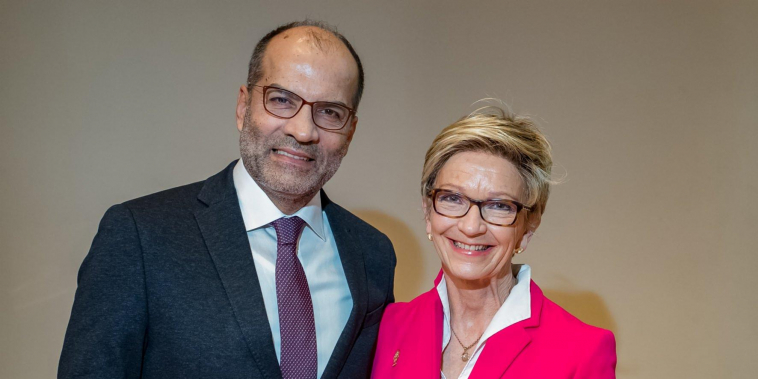90th Anniversary for Finland OBGYNs

The Finnish Association of Obstetrics and Gynecology is in a strong position to reflect on the changing landscape of women's health: founded in 1928, this month marks the organisation's 90th birthday.
"It is good to be a woman in Finland today,” wrote Professor Seija Grénman, former FIGO Vice President, considering both the domestic and the global picture from this week's 90th Anniversary Symposium in Helsinki.
"Reproductive health and education is a major area of focus for us: information about contraception is provided in Finnish schools, and contraception is readily available. At 4.5 cases per 100,000 women, the incidence of cervical cancer is one of the lowest in the world, and Finland’s abortion rate is the lowest of all the Nordic countries. However, as in many high-income countries, the total fertility rate is decreasing: 1.49 per 1000 in 2017, and average age at first delivery is 29.1 years.
When it comes to key global health indicators, Finland has some of the best outcomes. Both maternal mortality (0-5 mothers lost each year) and infant mortality (1.7 deaths per 1000) are among the lowest in the world, and the national caesarean section rate is 16.7% - close to World Health Organization recommendations. The median life-expectancy for a woman in is 84.2 years.
But this is not a universal picture. As a federation representing 132 countries worldwide, FIGO members know that resources, politics, context and culture play a huge part in determining a woman’s health - and that around the world, many face a broad range of barriers to their physical, mental, reproductive and sexual wellbeing.
The 90th Anniversary Symposium addressed many of these directly.
Professor Linda Giudice, co-chair of FIGO’s Working Group on Reproductive and Environmental Health, gave a powerful talk about the risks of harmful environmental exposures, while Dr Faysal El Kak, FIGO’s newly-elected Vice President, addressed the current migrant crisis and its impact on women.
Both healthcare providers and society at large need more awareness of the inhuman experiences many refugees have faced, he emphasised. Women are especially vulnerable in refugee camps, at high risk of both conflict-related and gender-based violence. They have a huge unmet need for contraception, as well as help during pregnancy and delivery.
But, Dr El Kak explained, while the Nordic countries have accepted a number of immigrants, more information is needed to understand the fears, reserved behavior and different perspectives of new arrivals, so as to meet critical medical and social needs.
These challenges are high on both the Finnish Association and FIGO´s agenda, as we work together to ensure that the global voice of women’s health is heard at local, regional and global level. Through partnership, programmes, research and advocacy, we are all committed to helping achieve the Sustainable Development Goals - and we see that the 2030 deadline is looming.
Of course, the Finish Association of Obstetrics and Gynecology will be 102 years old by then. I am optimistic that if we continue to listen, learn and work together, we will have even more reason to celebrate by then."